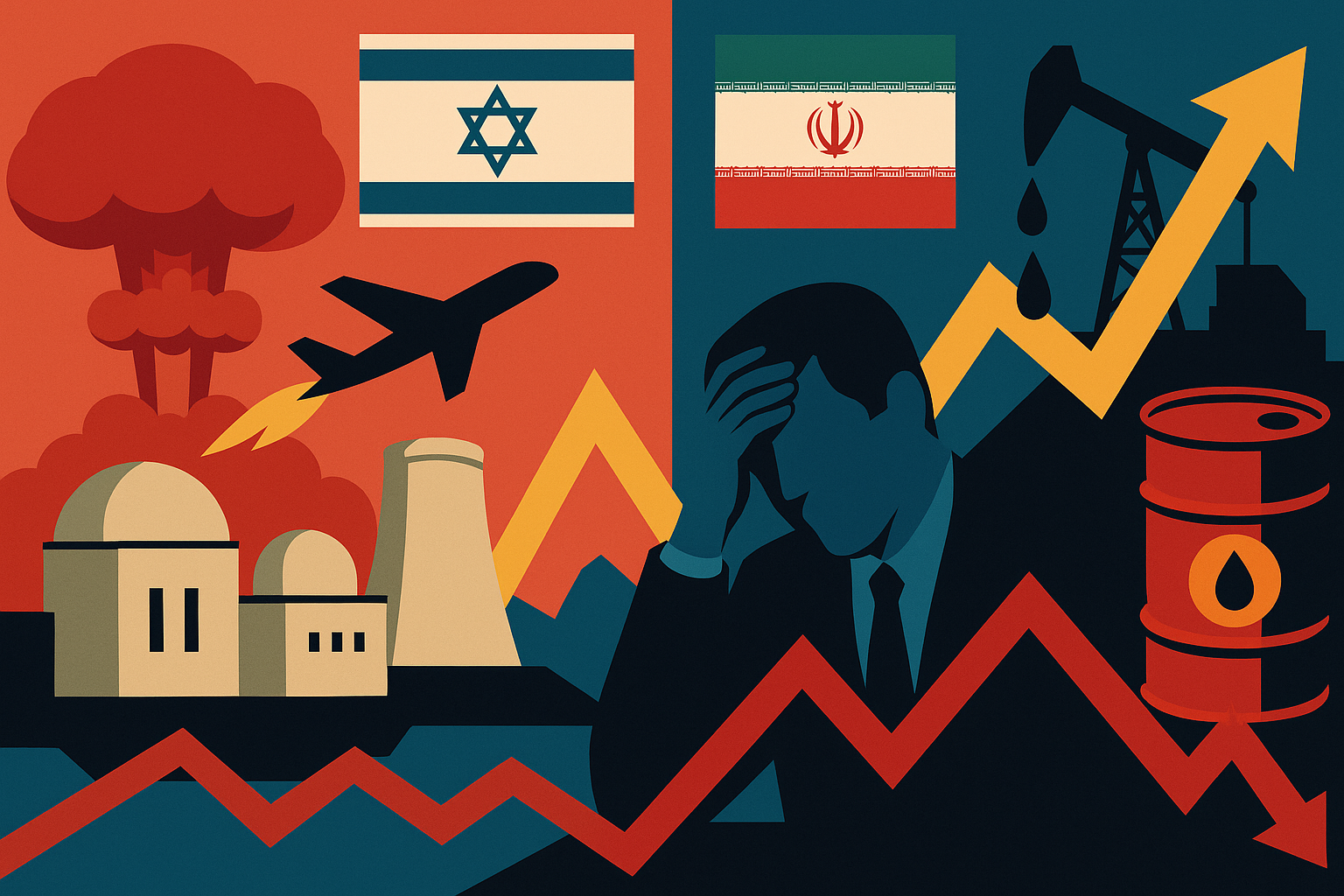On June 13, 2025, Israel executed a significant military operation dubbed “Operation Rising Lion,” targeting Iranian nuclear and military installations. The coordinated airstrikes have dramatically heightened geopolitical tensions, with significant implications for global security and economic stability.
Context and Background
The escalation follows a prolonged period of intense diplomatic standoffs regarding Iran’s nuclear ambitions, exacerbated by Iran’s alleged continued enrichment activities and provocative military posturing. Israel’s decisive military action reflects its consistent stance on neutralizing perceived existential threats.
Immediate Global Market Reactions
Global financial markets responded swiftly and sharply:
- Oil Prices Spike: Brent crude surged over 10% intraday, closing approximately 5-8% higher, reflecting fears of disrupted supply routes and potential retaliatory actions in the Strait of Hormuz.
- Stock Market Turmoil: U.S. markets suffered significant setbacks, with the Dow Jones Industrial Average plunging 769 points (~1.8%), and both S&P 500 and Nasdaq indices declining over 1%.
- Increased Volatility: The VIX “fear index” escalated roughly 17%, underscoring heightened investor anxiety and uncertainty.
Broader Economic Implications
The geopolitical risk stemming from this military confrontation could trigger a prolonged period of global economic volatility, especially if conflict escalates further. Possible ramifications include:
- Persistent elevation in energy prices, fueling inflationary pressures worldwide.
- Increased capital flows into traditional safe-haven assets like gold, U.S. Treasuries, and Swiss Francs.
- Slower global economic growth as businesses and investors adopt risk-averse postures amid escalating uncertainty.
Strategic Considerations Moving Forward
Global diplomatic efforts are now urgently focused on de-escalation to avoid broader conflict. Key international players, including the United States, European Union, and regional actors, face crucial strategic choices:
- Diplomatic intervention and mediation to stabilize the region and restore dialogue.
- Reinforcement of international coalitions and alliances to prevent wider economic and military disruptions.
- Close monitoring and management of market vulnerabilities by central banks and financial institutions worldwide.
Conclusion
Israel’s airstrikes have undoubtedly increased the stakes in Middle East geopolitics. Immediate diplomatic responses and strategic vigilance are vital to mitigate the risk of wider conflict and safeguard global economic stability in these uncertain times.
References:


